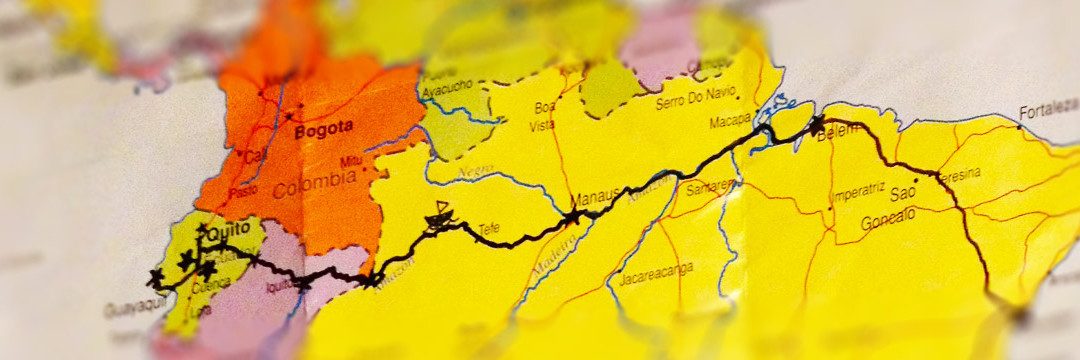After being in Europe for four months my idea of a good itinerary completely changed. Before I left the States I would go through my Rick Steve’s Travel Book and highlight every rural castle and majestic cathedral I could find. Statues, fountains, and everything in between were thrown onto my never ending ‘must go’ list. The pictures were exciting and I was a little naïve to the realities of what I would really enjoy doing. This was to be my first backpacking trip so, therefore, I didn’t know what the hell I liked. It wasn’t until spending three months in Spain that I started to figure that out.
I quickly learned that while the old castles and cathedrals were architecturally astounding, Europe has thousands of these old buildings. And after seeing ‘a lot’, I decided that seeing a few of the ‘best’ was good enough for me. Once I realized this, I stopped tailoring my backpacking itinerary around these objects. I was just thankful I hadn’t booked a bunch of flights or Eurorail passes before going, which would have left me stuck on a mundane trail of old buildings (of course that may sound perfect to you). Instead I was able to plan my route around various cultures, festivals, foods and friends. Nothing makes me cringe more than hearing about first time travelers planning their trip step by step: flights pre-booked, housing scheduled, maps printed, tour guides hired, etc. etc. This isn’t a wedding, it is an adventure! Odds are you won’t return as the same person you were when you left. Accept this and leave flexibility for your transformation.
On the other hand, planning an itinerary can be a daunting task and is important when trying to make the most of a limited time frame. So here are my tips on how to get your mind right while doing it. These are my recommendations when it comes to planning your itinerary and researching things before leaving home.
1. Figure out your interests.
Think about what you do at home. Now think about whether or not you want to do these things abroad or if these are the things you are trying to escape from. Some people will be fortunate in this area because they have very defined hobbies and interests. If you hike a lot you will probably seek out mountains; if you play sports you should probably look out for tournaments to participate in; if you like to sample beer/wine find some microbreweries and vineyards to tour; and if you like history and architecture… well then go see the buildings and archaeological digs! Odds are you will get a thrill out of doing these things in new countries under new circumstances with new variables. However, if your life revolves around your job, boxed wine and keeping up with those damn Kardashians, you may have a lot of thinking to do.
2. Don’t plan too much. Stay flexible.
Don’t plan too much and only pre-book what you must. In other words: leave room for the unexpected. The unexpected is showing up in Barcelona and meeting some kick ass Aussies in the hostel. You accept an invite for a night on the town, hit it off and then you find out they are heading for some crazy tomato fight in Valencia. Great news, they want you to come with! But shit… you have a flight already booked to sit on the beach in the French Riviera. Things like this WILL happen if you book too much and you will find yourself passing up great offers about things you never knew existed. Don’t be that girl/guy.
Relating back to the first rule, understand the following concept when trying to figure out how much to book: how well you understand yourself has a direct correlation to how much freedom to leave yourself. The more you know the more you can plan. The less you know the less you should plan: your goal is self-discovery. But no matter where you fall in that spectrum leave some wiggle room. Those spontaneous invitations just might be the highlight of your trip.
3. Use multiple resources in your research.
Before you take off, odds are you are going to do some research. So don’t be lazy. If you really want to get off the beaten path and have unique experiences then you are going to have to do more than consult your travel bible (i.e. Lonely Planet and Frommer’s) and ask your friends. The great news is that a world of resources is literally at your fingertips, but it is going to take diverse sources to find it. Now I’m not going to require a certain number of resources like your high school English teacher did. Just make sure you try enough to see which ones are best for you. Once you know the regions you are going to, be sure to consult books (fiction and nonfiction), blogs, websites, friends, YouTube videos, documentaries, and more.
4. Understand bias in your sources.
When soliciting advice understand where it is coming from. Do these people enjoy doing the same thing as you? Are they giving you any advice on where not to go? You have to understand that advice is limited to the places people experienced themselves, so realize that they didn’t see it all. If we only traveled off the advice of others then we would all see the same things.
Also, be cautious of the phonies. People can be as narcissistic in their travel stories as they are about their ‘perfect’ lives on Facebook. Be careful of vague descriptive words such as ‘best’, ‘amazing’, ‘life changing’, ‘epic’, etc. Ask, “WHY was it life changing? WHY was it the best and WHAT does that even mean? Was there anything you didn’t like about it?” Nothing is ever perfect and people who can’t be honest about that just want you to live in their false sense of reality. They want you to think that their trip was the ‘best’ and everything they experienced was the ‘best’. They might not even know they are doing it. For this reason it is your job to be an active listener and distinguish legitimate claims from over/under-hype.
5. Don’t be scared.
If you are planning your trip based only off of other opinions then it is probably because you are scared. Scared to go somewhere ‘lame’. Scared to get ‘lost’. Scared to go somewhere ‘dangerous’. Don’t be afraid to branch out and have ‘bad experiences’. On top of that, realize that ‘bad experiences’ are usually just a state of mind. In my opinion, the bad times make for the best stories later and were typically the areas where I experienced the most self-growth. That being said, there is good fear and bad fear and you should always be a smart traveler. But that is for another post.
6. Be frugal in all the right places.
Real quick, let’s clarify something: we are talking about travel, not vacation. Knowing that, let’s figure out what our money should be going towards. Good expenses and splurges are: adventures, experiences, festivals, education, friends, philanthropy, culture, and foreign cuisine. Notice how, ‘big comfortable bed with private bathroom and cable TV’ is not a line item. Also notice how ‘premium travel on planes and trains’ isn’t either. If these latter two are what you are after then let me save you a lot of money: stay home. There is no honor in spending twice as much just so that you can live like you do at home. In the grand scheme of things your trip is probably less than 1% of your lifespan so suck it up and tough it out. And if you actually will be traveling for three months or more then that is even more of a reason to be frugal in these areas. They add up the fastest. Take my advice and when you return home, your bed will have never felt so good.
7. Don’t worry if you don’t have it all figured out.
It’s just that simple. You don’t need to be in control of all the details. Trust that it will all work out and enjoy this short period where, day-to-day, you can truly be free to live your life as you see fit.
Did I miss anything? Let me know in the comments below!

